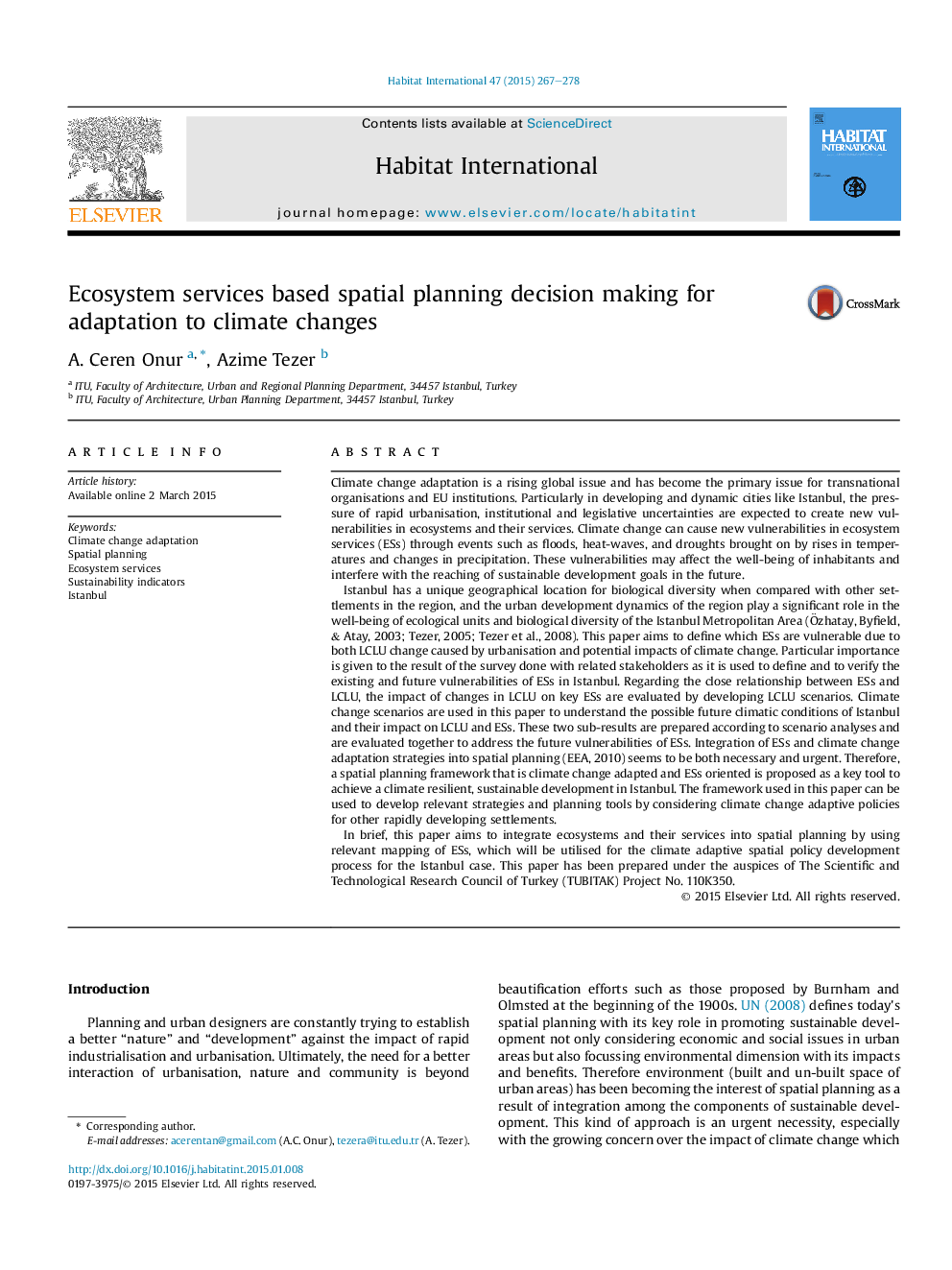| کد مقاله | کد نشریه | سال انتشار | مقاله انگلیسی | نسخه تمام متن |
|---|---|---|---|---|
| 1047901 | 1484496 | 2015 | 12 صفحه PDF | دانلود رایگان |
• The impact of change in land cover-land use (LCLU), on key ecosystem services (ES) is assessed using spatial scenarios.
• Climate change scenarios are developed to address the additional impact of climate change on LCLU and ESs.
• These two sub-studies are evaluated together to understand vulnerable ESs in regard to both climate change and urbanisation.
• A climate change adapted ESs based spatial planning framework.
Climate change adaptation is a rising global issue and has become the primary issue for transnational organisations and EU institutions. Particularly in developing and dynamic cities like Istanbul, the pressure of rapid urbanisation, institutional and legislative uncertainties are expected to create new vulnerabilities in ecosystems and their services. Climate change can cause new vulnerabilities in ecosystem services (ESs) through events such as floods, heat-waves, and droughts brought on by rises in temperatures and changes in precipitation. These vulnerabilities may affect the well-being of inhabitants and interfere with the reaching of sustainable development goals in the future.Istanbul has a unique geographical location for biological diversity when compared with other settlements in the region, and the urban development dynamics of the region play a significant role in the well-being of ecological units and biological diversity of the Istanbul Metropolitan Area (Özhatay, Byfield, & Atay, 2003; Tezer, 2005; Tezer et al., 2008). This paper aims to define which ESs are vulnerable due to both LCLU change caused by urbanisation and potential impacts of climate change. Particular importance is given to the result of the survey done with related stakeholders as it is used to define and to verify the existing and future vulnerabilities of ESs in Istanbul. Regarding the close relationship between ESs and LCLU, the impact of changes in LCLU on key ESs are evaluated by developing LCLU scenarios. Climate change scenarios are used in this paper to understand the possible future climatic conditions of Istanbul and their impact on LCLU and ESs. These two sub-results are prepared according to scenario analyses and are evaluated together to address the future vulnerabilities of ESs. Integration of ESs and climate change adaptation strategies into spatial planning (EEA, 2010) seems to be both necessary and urgent. Therefore, a spatial planning framework that is climate change adapted and ESs oriented is proposed as a key tool to achieve a climate resilient, sustainable development in Istanbul. The framework used in this paper can be used to develop relevant strategies and planning tools by considering climate change adaptive policies for other rapidly developing settlements.In brief, this paper aims to integrate ecosystems and their services into spatial planning by using relevant mapping of ESs, which will be utilised for the climate adaptive spatial policy development process for the Istanbul case. This paper has been prepared under the auspices of The Scientific and Technological Research Council of Turkey (TUBITAK) Project No. 110K350.
Journal: Habitat International - Volume 47, June 2015, Pages 267–278
